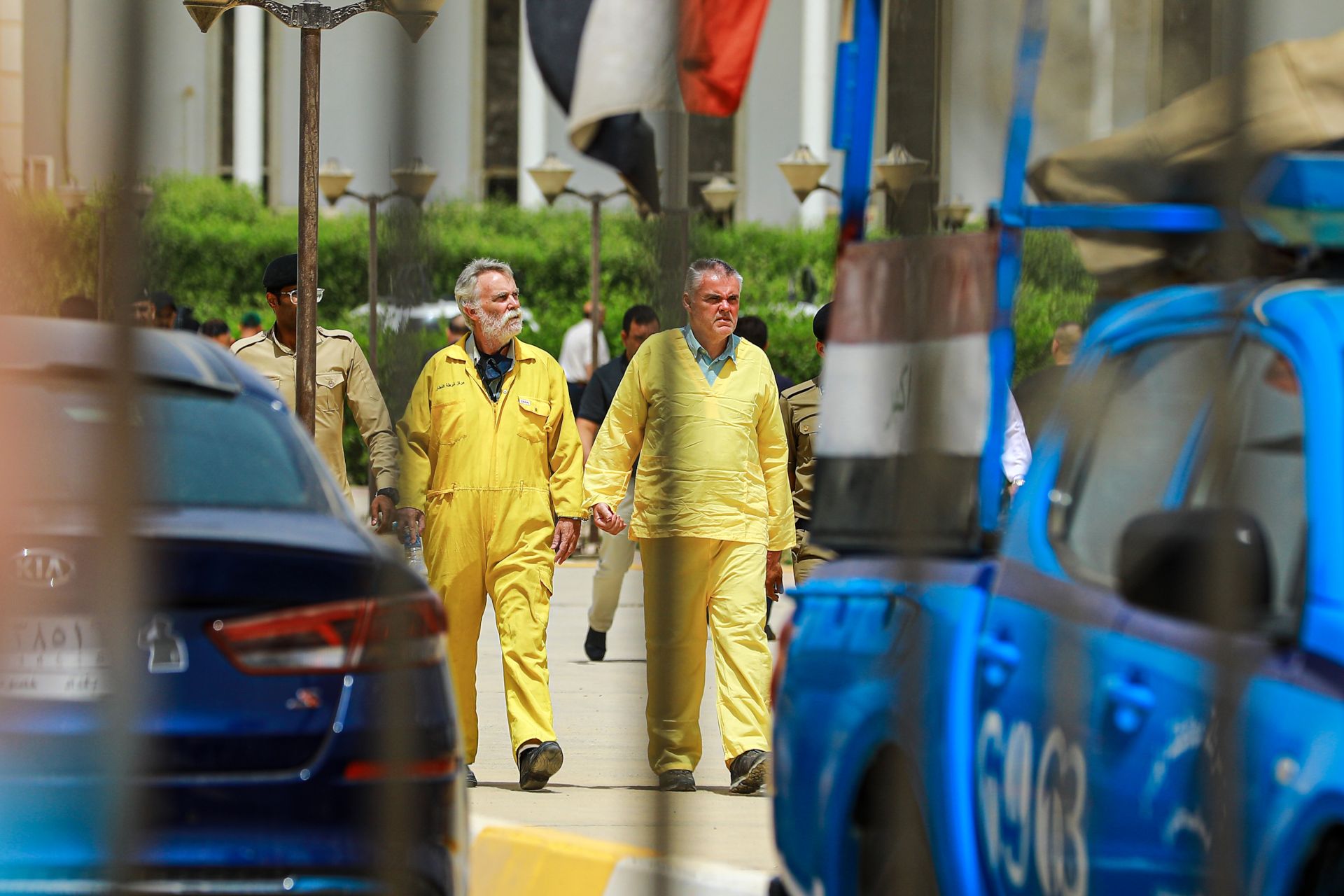Spotlight is a newsletter about underreported cultural trends and news from around the world, emailed to subscribers every Monday. Sign up here.
When I was based in the United Arab Emirates, there was a category of news story we came to expect, particularly from the British press, that was simply an exercise in Dubai-bashing. I’m not talking about legitimate stories like the plight of laborers or human rights abuses. But stories meant to bash the city for its self-promotion as a hub of modernity, business and diversity.
One perfect example of this phenomenon was the saga in 2008 of two Britons who were arrested and jailed for allegedly having sex on the beach in Dubai. The story had a lot of surrounding circumstances whose veracity is difficult to gauge, including whether they were actually having sex and claims that the police officer who detained them had initially warned them and was assaulted by the couple the second time he found them, among other titillating reports. They were ultimately convicted and sentenced to three months in jail, though the sentence was suspended, allowing them to leave the country.
The British press covered the salacious story with voracity, reporting in exaggerated bewilderment at the temerity of a city arresting someone for having public sex. The subtext was that Dubai, for all its pretensions to modernity, was this backward place that could not quite come to terms with Western customs. Never mind that the couple would have been arrested for public sex in most other places in the world.
Still, the tone of gentlemanly shock was fascinating to me — it seemed meant to convey an inoffensive stupefaction at the ways of these Stone Age natives. It also came with the presumption that laws should not apply to their own citizens. It had nothing to do with the actual validity of the law per se, but the prospect that citizens of a first-world country should be beholden to laws at all beyond their own shores, especially in backwards Arab countries. Later in college I learned there was a term for this sort of behavior — extraterritoriality. It was a legal principle that colonists applied to countries they colonized, where their own citizens enjoyed legal immunity in the colony for actions that would otherwise be crimes or that they would be prosecuted for at home, as though it were some type of imperial hangover.
Oddly enough the sex on the beach case came to my mind as I read the breathless coverage of the story of a retired British geologist who was sentenced to 15 years in prison in Iraq after allegedly taking a dozen rocks and pottery fragments (it’s not clear what the breakdown of each category is) from the ancient archaeological site of Eridu and trying to fly out of the country with them in his luggage, for the crime of trafficking antiquities.
Fifteen years, particularly given the man’s age, is an excessive sentence. I don’t know what he was thinking the moment he picked up the artifact fragments from the site, though presumably as a geologist he should have known better, at least in terms of the difference between indigenous rocks and archaeological fragments. He insists he did not know he was breaking the law.
The BBC published a statement from the family that I found fascinating, however. After declaring that they were heartbroken by the verdict, they described the crime as “trivial” and “dubious,” urging the British government to intervene in the case. The tone of the coverage has also generally been bafflement at the prospect of someone being tried at all for taking artifacts from one of the most important sites in ancient Mesopotamia.
First of all, there is nothing trivial about laws meant to protect Iraq’s heritage. The country has endured decades of looting and artifact trafficking and destruction, from the notorious images of the looting of Iraqi museums in the immediate aftermath of the American occupation to the destruction of heritage sites and manuscripts by the terrorists of the Islamic State group. Many of these priceless treasures have ended up in private collections or museums in the West, and efforts are ongoing to repatriate them.
There is also the fact that a British citizen would not attempt to take away pottery fragments from Stonehenge or a British museum, or even touch the historical artifacts on display. That they were simply lying around in the open on an archaeological dig site is not an excuse to lay claim to them.
Finally, the press coverage also inevitably incorporates demands of the British government and its diplomatic mission to intervene in the case and win the man’s freedom, which has of course been met with platitudes that they are providing consular assistance to a British national. It’s not clear to me what the British government is supposed to do exactly in a case where a citizen is convicted of a crime abroad. Are British subjects not supposed to be beholden to the laws that apply to citizens of the country they are in? To the law of the land? This is not a case of a human rights activist or dissident being jailed for their views, like the British citizen Alaa Abdel-Fattah (nothing of consequence has been done to free him from arbitrary detention in Egypt), or an academic being falsely accused of espionage. Can Iraq or Egypt or Lebanon or Syria intervene whenever one of their citizens is jailed in the West for a crime? Or is the assumption that Western laws are worthy of being followed, that their progenitors are above following the laws of those backward countries?
I do hope the man ultimately returns to his family and his sentence is reduced or suspended because of mitigating circumstances. But I also hope the media abandons this colonialist mindset — that crimes in the developing world don’t quite count.



